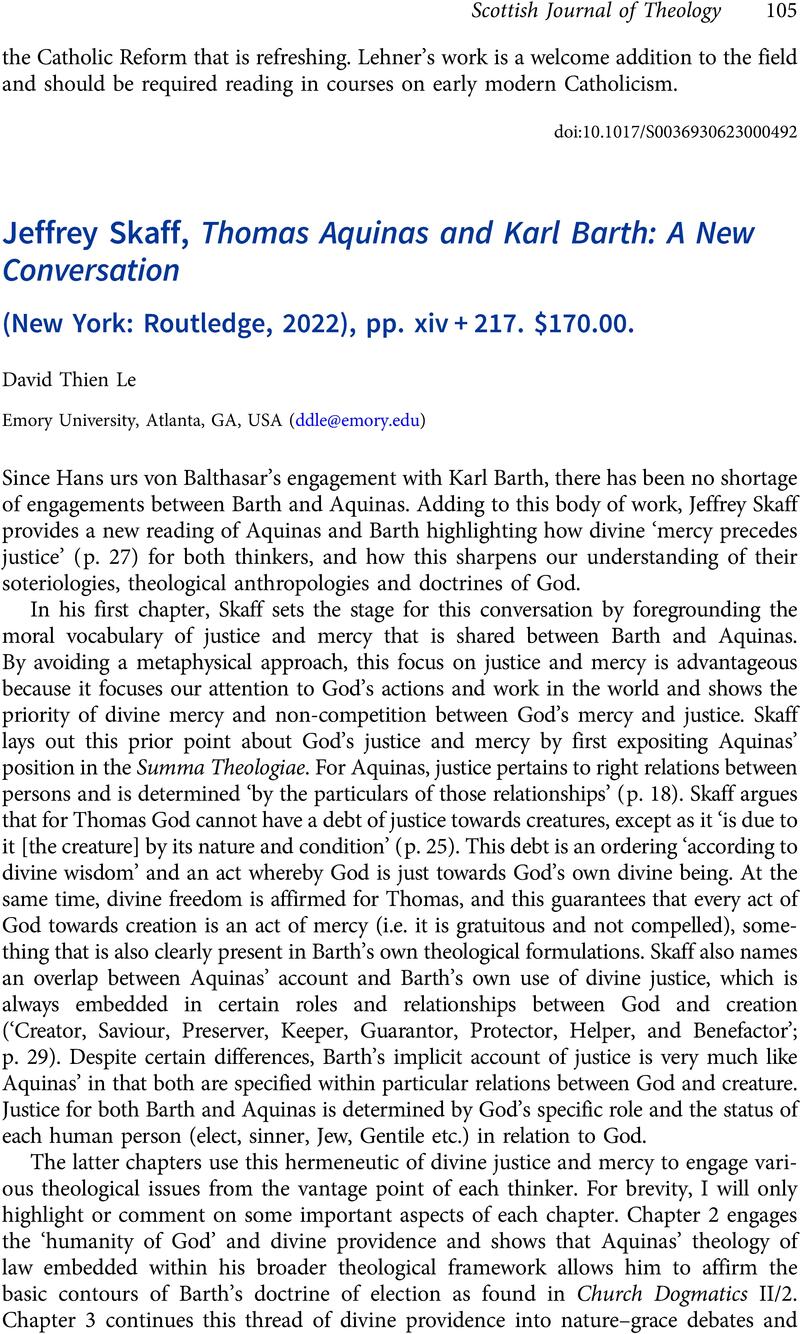No CrossRef data available.
Article contents
Jeffrey Skaff, Thomas Aquinas and Karl Barth: A New Conversation (New York: Routledge, 2022), pp. xiv + 217. $170.00.
Review products
Jeffrey Skaff, Thomas Aquinas and Karl Barth: A New Conversation (New York: Routledge, 2022), pp. xiv + 217. $170.00.
Published online by Cambridge University Press: 07 August 2023
Abstract
An abstract is not available for this content so a preview has been provided. Please use the Get access link above for information on how to access this content.

- Type
- Book Review
- Information
- Copyright
- Copyright © The Author(s), 2023. Published by Cambridge University Press



